Greetings to all team members, current and future employees, community members, partners, African entrepreneurs, innovators, and advocates of impact investment, social justice, and economic development:
Evidence is evidence, facts are facts, and reality is reality, no matter how bitter or painful it might be, or whether you are courageously facing it, denying it, or defaulting to a defeatist position. In this third decade of the third millennium, and as the 23rd year of the 21st century is winding down and we are moving into the uncharted territory of the future, the African continent is facing unprecedented and overwhelming challenges that absolutely demand a new way of thinking, as well as new tools to tackle our most pressing socio-economic problems. Amisi & Company was intentionally created for this reason— to stimulate further thinking, imagine better alternatives for economic development, and bring forth potential solutions to our predicaments. Our noble mission is to use human ingenuity to build new business models from scratch that address Africa’s most pressing challenges. These businesses will be tailored to our continent’s particular context and unique needs—businesses that serve the underserved populations and advance shared prosperity.
I feel passionate about this mission. It is a thorny undertaking and also an exciting journey to relentlessly pursue reason, search for truth and beauty, and reexamine the conventional to detect human-caused errors in order to face our strenuous reality with far greater clarity. Therefore, we can create beautiful things that impact our communities, advance economic equity, and eventually humans will flourish. I am as excited as you are to be a part of this mind-broadening and rewarding human experience. For those of you who are still learning about Amisi & Company, I hope you become as enthusiastic about our mission as we are.
Now, perhaps more than ever, if we want to significantly create more economic opportunities in Africa so that those who live in extreme poverty can flourish, we must radically challenge the status quo like never before. We must look at problems with fresh eyes and be brave enough to tackle them in a very unconventional way. This requires a pioneer mindset, original thinking, a brave heart, character, grit, purpose, vision, determination, resilience, iron discipline, and creative freedom. This noble endeavor demands that we navigate in the vastness of the unknown, a territory where possibilities are endless and where imagination wins. I would like to emphasize that one more time—this is a territory where possibilities are endless and where imagination wins. My ceaseless examinations of world history have taught me six crucial points that I highly encourage you to keep in mind:
1. The problems that we are facing in Africa are not inescapable nor inevitable.
2. We have a much wider horizon of possibilities before us than we imagine.
3. No individual, no institution, no kingdom, and no empire can predict the future with accuracy, but human ideas and intentional actions can influence and shape the course of history in either a good or bad way.
4. No economic theories, ideologies, models, concepts, or methodologies invented by a member of the Hominidae family (those mortal flesh-and-blood creatures made with atoms that are known as human beings) have definite answers; none of the human-made “isms” hold the final and absolute truth.
5. No one has a monopoly on the truth, and no one exclusively holds the recipe or special formula on how to implement great ideas that can change the world.
6. All the great and important things to know about our world and the complexities of its societies have not been discovered yet. Thus, there are new methods to be created, new models to be conceived, new industries to be invented, new paths to be taken, new horizons to be seen, new truths to be discovered, and many more world-changing companies and organizations yet to be started.
The truth is there are countless complex problems left to be solved in Africa. Reason and evidence have taught me that we cannot effectively deal with all of those crucial problems by solely, scrupulously, meticulously, and blindly following the common beliefs, formulaic practices, routinized blueprints, predetermined methods, singular-solution frameworks, codified processes, and every A, B, C, and D according to convention. We cannot advance considerable progress in this vast continent, which has been through a lot these past five hundred years, by following preposterous stories that are based on misconceptions, illusions, incompleteness, superficiality, biases, and single-minded views of the world. This letter is an invitation to rationally engage our thoughts, broaden our horizons, and strive to confront reality with unusual perspectives and new tools. It is a call to imagine better alternatives to the existing conditions and blaze new paths.
As one of my favorite scientists, the physicist Richard Feynman, presciently warned humanity with a crystalline courage, “It is our capacity to doubt that will determine the future of civilization.” He then added, “Learn from science that you must doubt the experts. The experts who are leading you may be wrong.”
What does it mean to doubt something? It means to call the truth about something into question. To doubt, at its root, is to question. When you doubt something, you question it. How can we find the truth without questioning? How can we generate new knowledge and create new tools that could accelerate progress in Africa without questioning the existing ones? Dear fellow changemakers, questioning is the only path to the truth. There is no new knowledge without questioning what is conventional. Without new knowledge, there are no better solutions. And without bold and better solutions to the problems that we are facing, there is no progress for Africa.
You live in a world full of complex problems and challenges that require you to ask deeper questions rather than seeking easy and familiar answers. May you remember that you are not here on Earth to blindly accept what is known, stay in the comfort box of the conventional and let dominant ideologies eclipse your chief gift of nature, which is the freedom of thought—the freedom to doubt. Have you ever used your freedom of thought to question why the Democratic Republic of the Congo—a country that holds more reserves of a precious metal called cobalt than the rest of the planet Earth combined, a country that supplies roughly 80% of the cobalt that the world needs in the energy storage industry and for the fabrication of all those rechargeable batteries that power your hybrid and electric vehicles (EVs), laptops, tablets, smartphones, drones, vapes/e-cigarettes—doesn’t have a single mega battery factory? Have you ever questioned why the local people in the region where these natural resources are extracted live in an extreme poverty beyond imagination, and why they work in subhuman conditions while tech giants that need Congolese cobalt are worth trillions? Even more alarming are the Congolese children and women who toil away in mines in slave-like conditions so you can have those modern electronic gadgets of “human civilization”.
Furthermore, why does the DRCongo, a country with so much available farmland—80 million hectares (197 million acres) of arable land that can feed close to 2 billion of the human beings on planet Earth—currently have a significantly insane number of its population suffering from acute food insecurity? Does that make sense to you? I want you to reason through this one more time. Over 70% of the world’s cocoa beans come from Africa. The cocoa and chocolate market size were valued at about $47.14 Billion in 2022 and this is projected to reach $76.28 Billion by 2030. Have you tried to question the cocoa value chain from the local farmer to the consumer to detect the flaws, human-made errors, and unfairness, and find out why the farmers who are working hard in west African countries such as Ghana, Ivory Coast, and Nigeria to produce the cacao that the chocolate industry needs across the globe are living in poverty and can’t even provide for their families while chocolate giants are reaping huge profits? Have you dared to ask what possibilities exist for Africa that have not yet been considered?
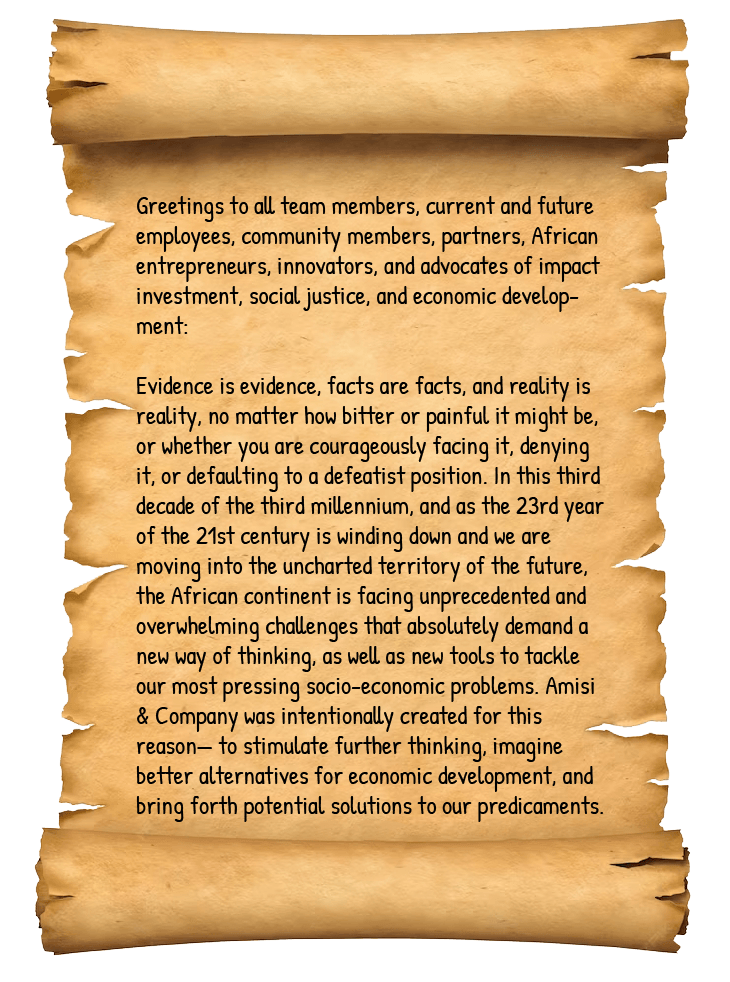
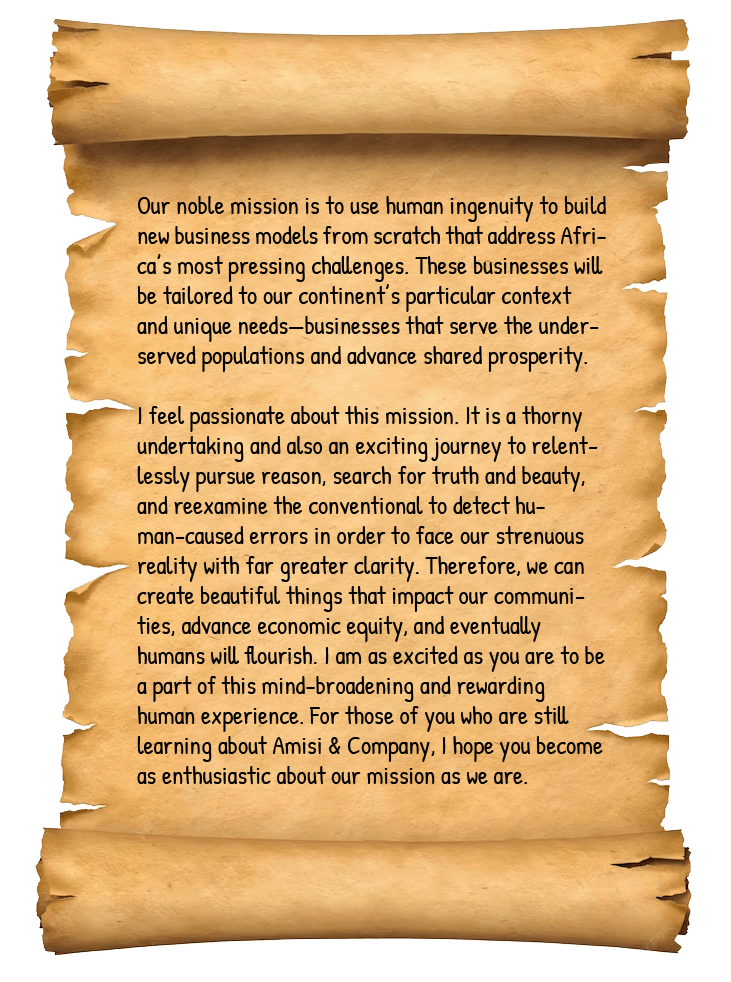
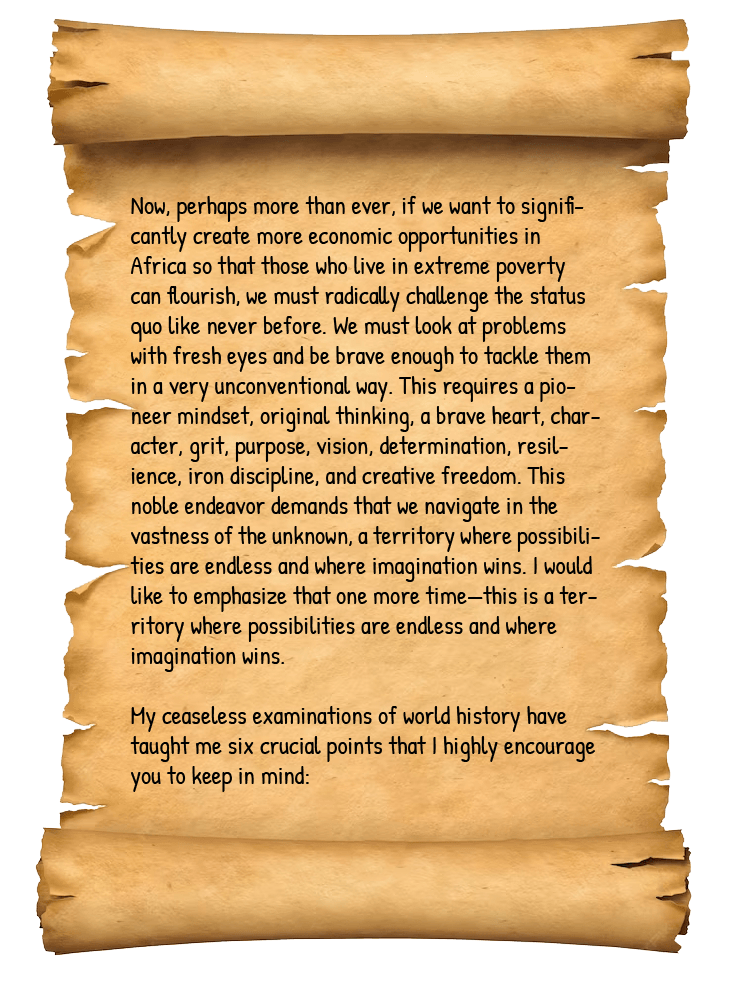
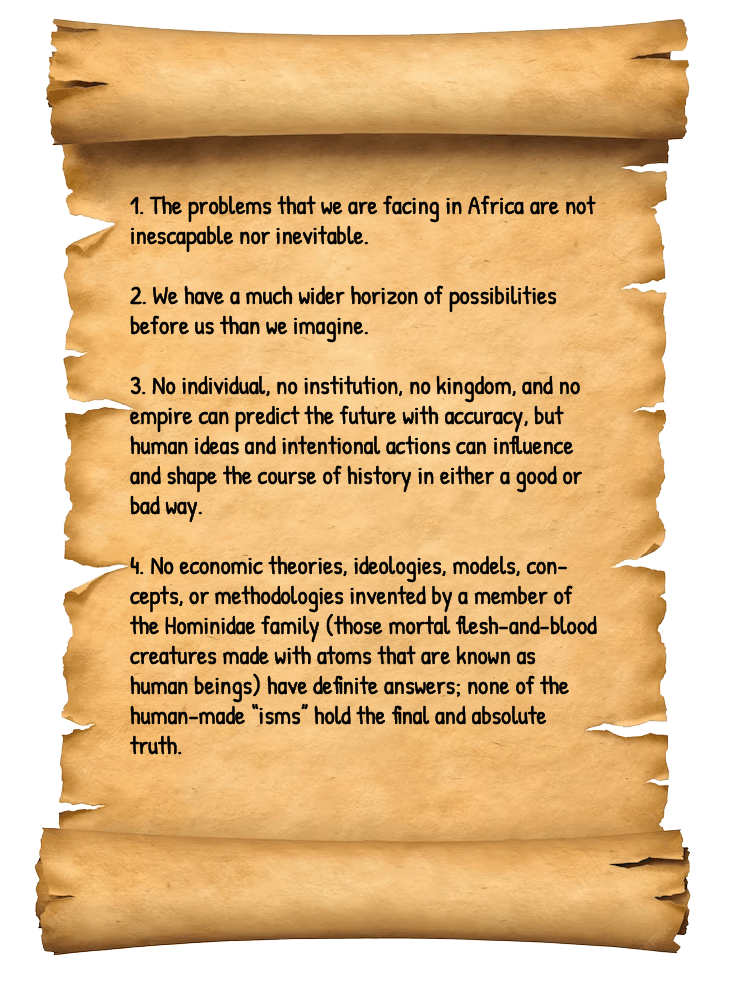
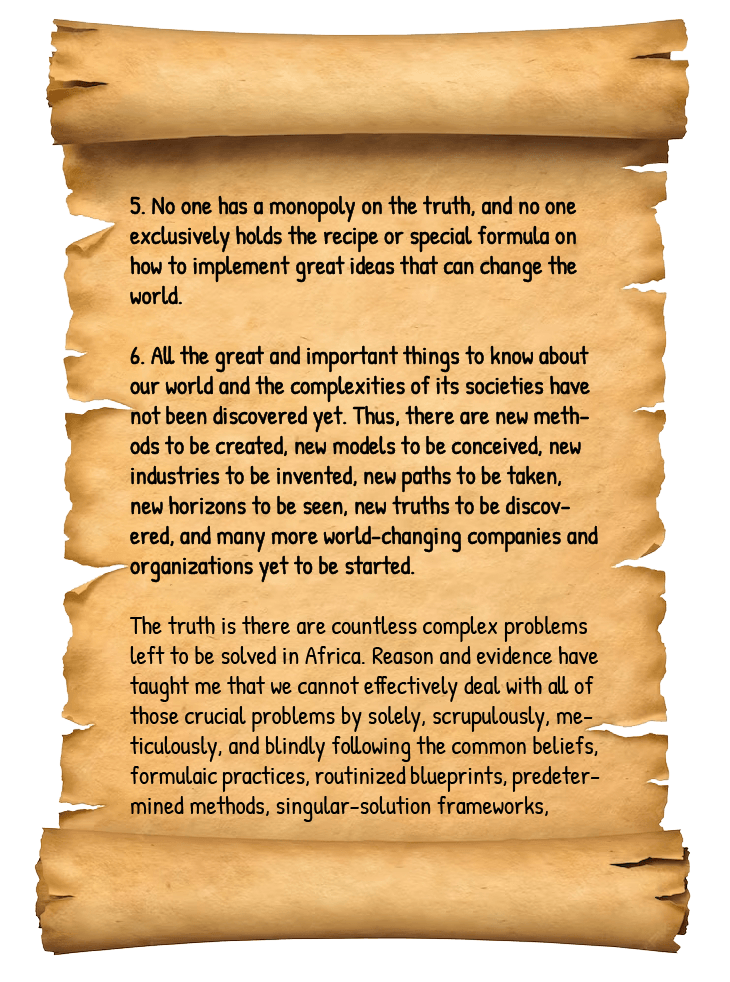
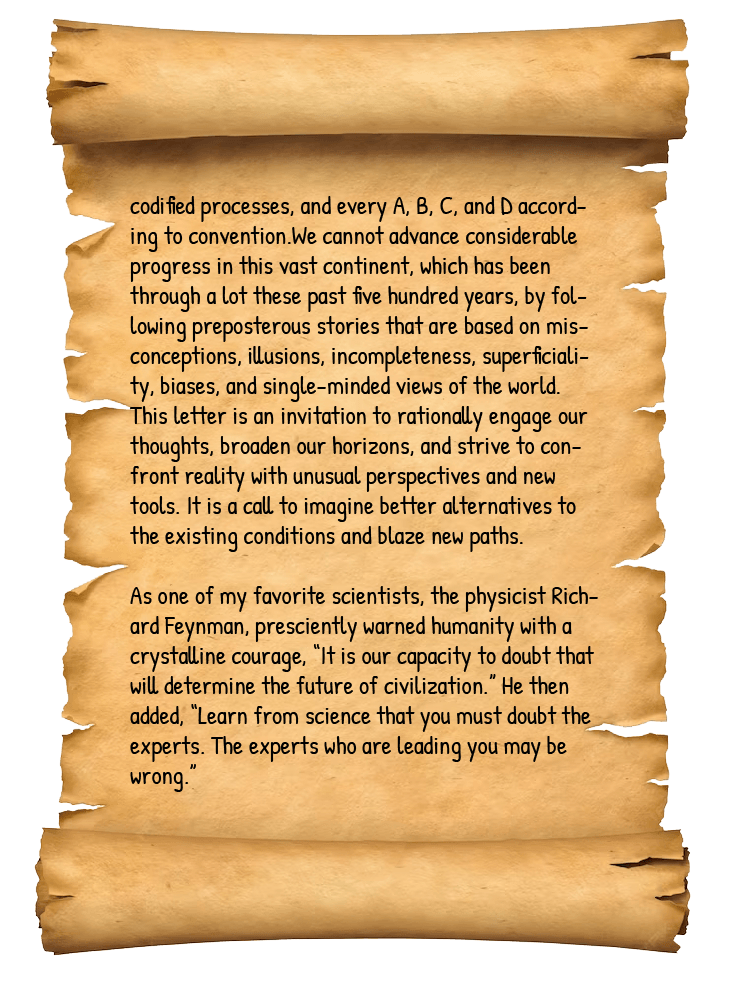
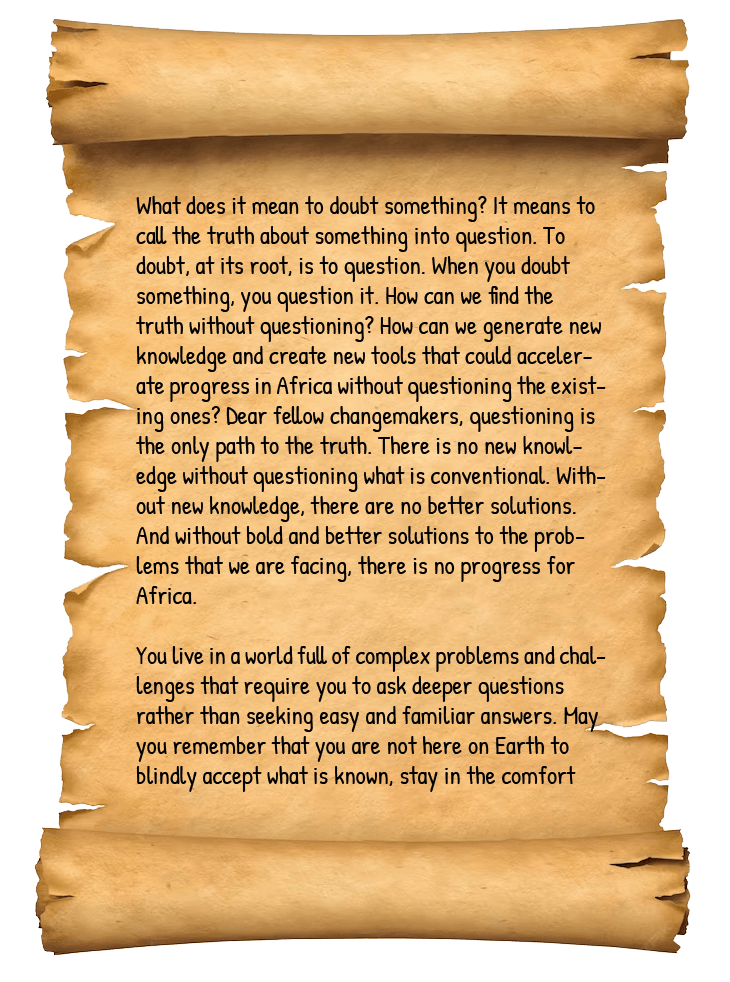
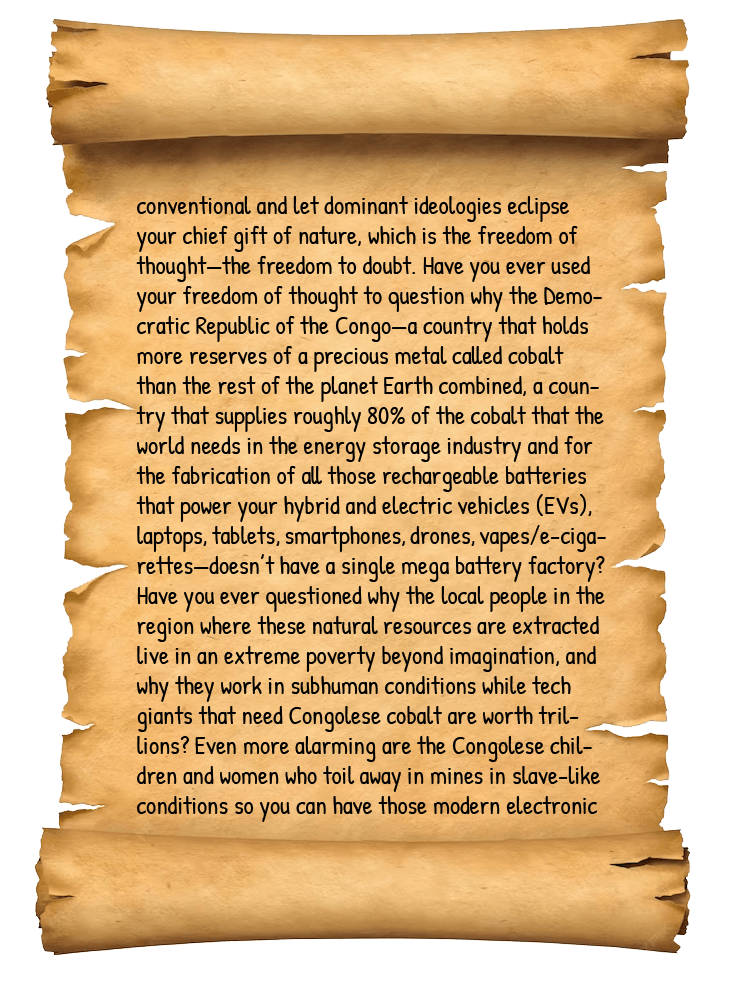
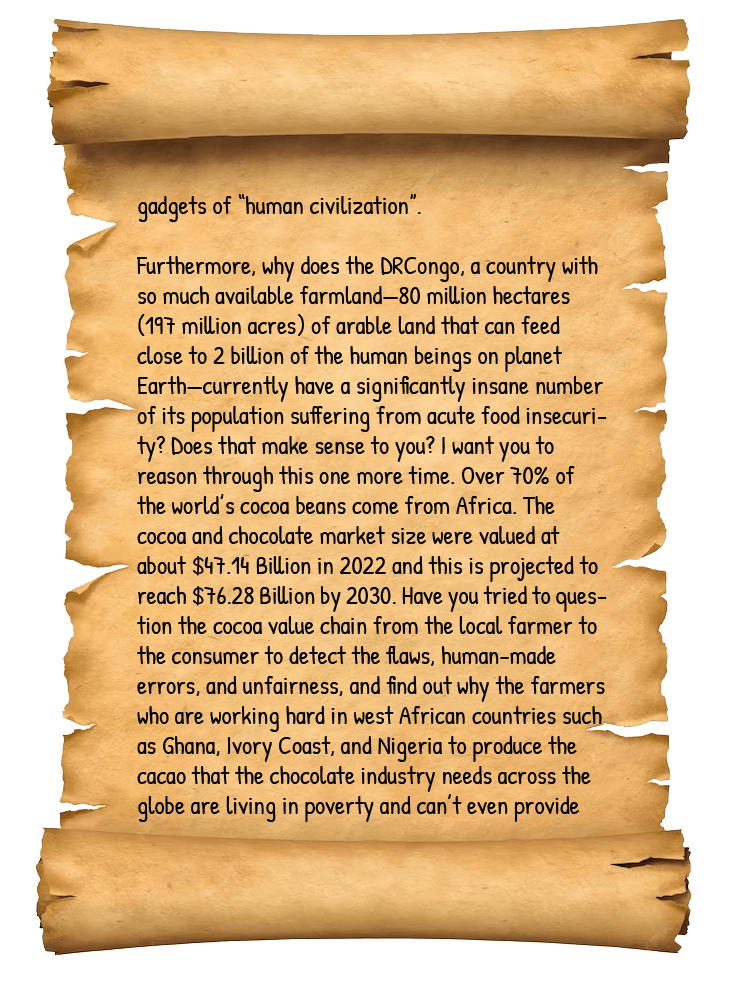
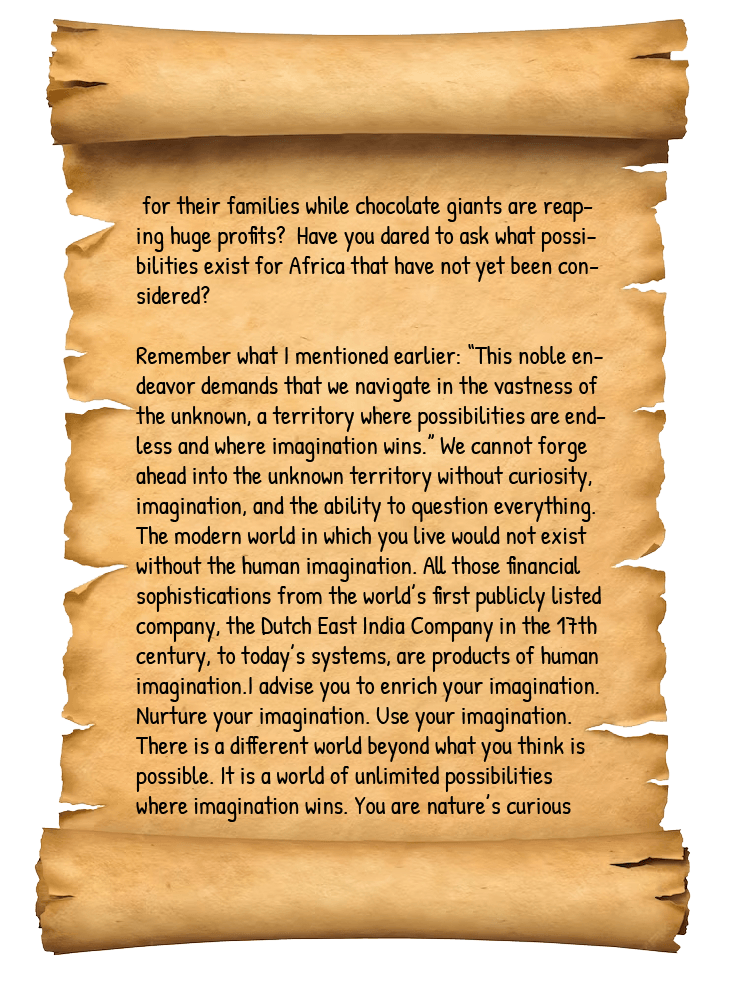
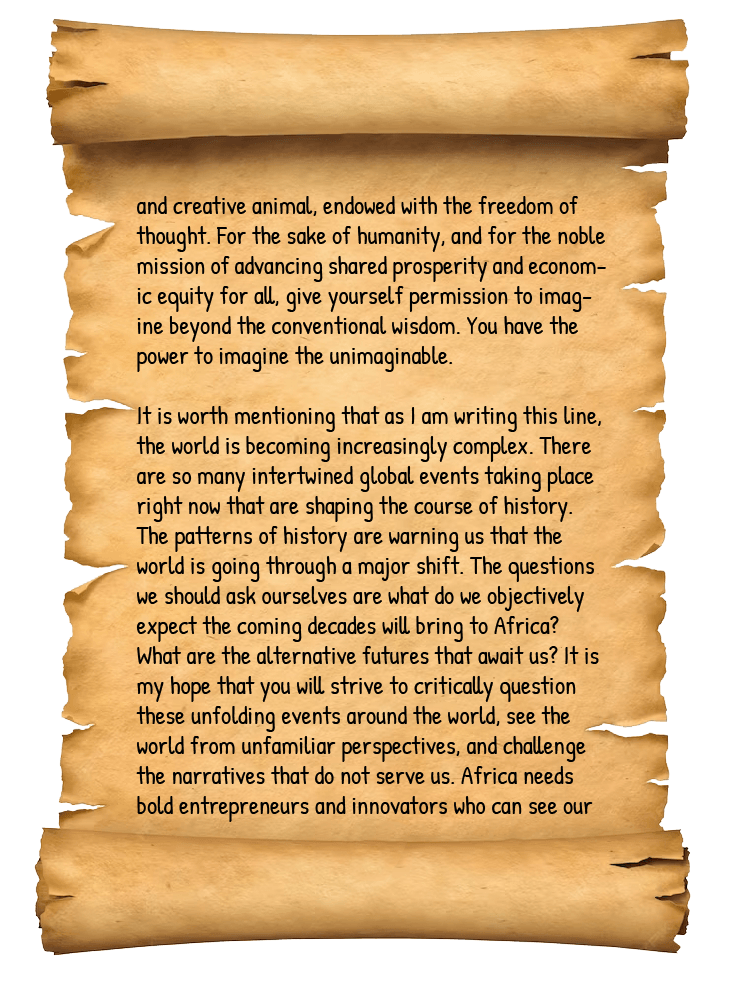
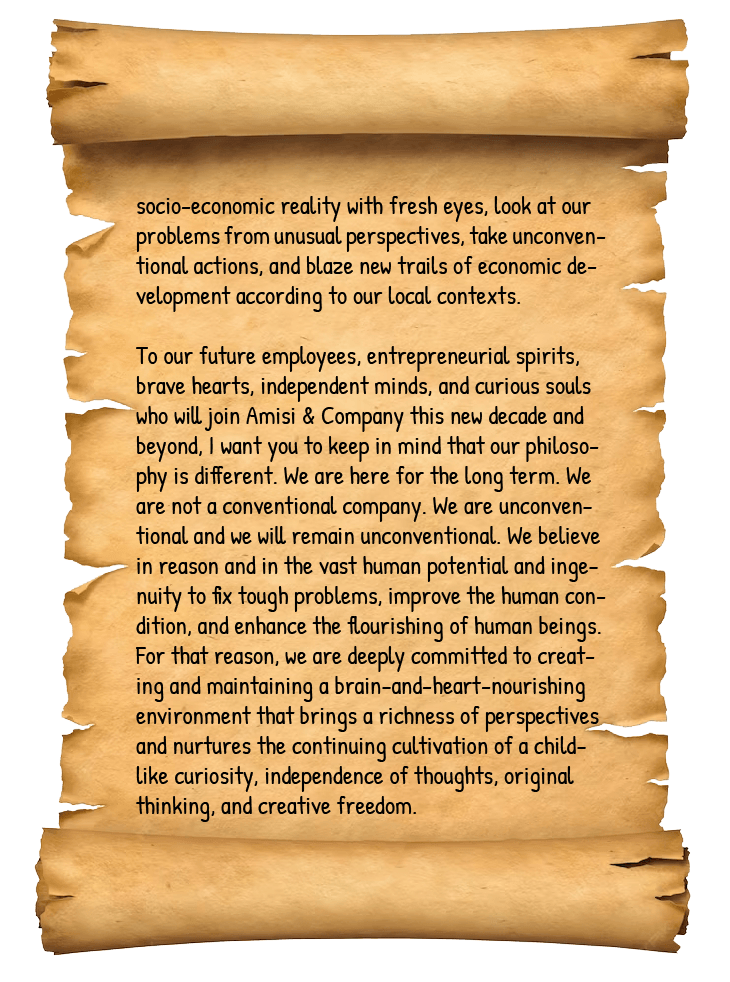
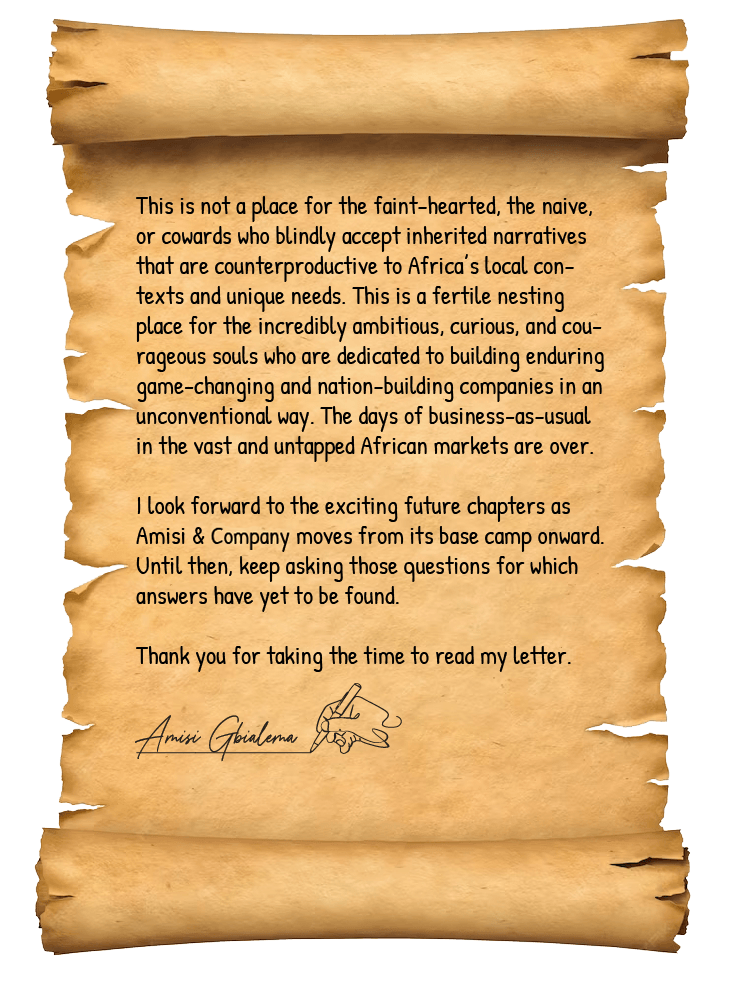
© 2025 Amisi & Company, All Rights Reserved.